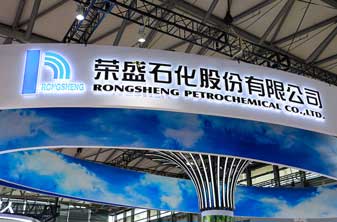Plants: Rongsheng starts up pilot plant for alpha-olefins; BASF to close production plants for adipic acid, CDon and CPon in Germany

China’s Rongsheng Petrochemical has started trials at its polyolefin elastomer (POE) plant in Zhoushan, Zhejiang province. The alpha-olefin pilot production facility has a capacity of 300 tonnes/year of 1-octene or 1,000 tonnes/year of 1-hexene with alternative process conditions.
The Hangzhou-based petrochemicals giant says the facility uses ethylene as the feedstock.
Foreign chemical businesses used to be the main POE producers, as the technology to make both the polymer and the monomers were once highly monopolised.
Rongcheng’s successful test output of the two monomers shows the company is cutting China’s dependence on foreign production technologies, and is able to produce much more value-added products, it added.
Both 1-octene and 1-hexene are important monomers used to produce POE, a high-performance, higher value polymer product that can act like plastics and rubbers simultaneously. Its unique physical property makes it an excellent engineering material with various applications.
Several other Chinese firms have also unveiled plans to build POE plants in recent years. In January, Rongsheng and its second-largest shareholder Saudi Aramco, announced that they would partner on a new US$9.5 billion facility in Zhoushan.
Among the various products the joint venture is scheduled to turn out is POE, with a planned production capacity of 200,000 tonnes/year. The plant is set to be operational in three years.

In other news, in its aim to improve profitability at its Ludwigshafen site in Germany, chemical firm BASF will end the production of adipic acid, cyclododecanone (CDon) and cyclopentanone (CPon) at the plant. The production plant for CDon and CPon will be shut down in the first half of 2025 and the remaining adipic acid production in Ludwigshafen will be closed in the course of 2025. The company says it has taken this decision as part of the ongoing strategic review of its production setup at the Ludwigshafen site to ensure competitiveness under changing market conditions.
CDon is the main raw material to produce lauryl lactam, a precursor for the high-performance plastic polyamide 12 (PA 12). CDon is also used in the synthesis of musk fragrances and UV stabilisers. CPon is used as a building block for synthesising crop protection agents and active pharmaceutical ingredients, as a solvent in the manufacture of semiconductors, and as a precursor to producing special fragrances. Adipic acid is used to produce polyamides, polyurethanes, coatings, and adhesives, among other things.
It will continue to produce adipic acid in Onsan, South Korea, as well as with its joint venture in Chalampé, France.
The production capacity for adipic acid had already been reduced as part of the adjustments to the structures at the Ludwigshafen site announced in February 2023. The remaining adipic acid production was partially continued to ensure supplies of raw materials for the production of CDon and CPon. BASF will cease deliveries of CDon and CPon in close coordination with customers.
Approximately 180 employees will be affected by the plant closures. BASF will support affected employees in finding new employment opportunities within the BASF Group.
“BASF is taking this step to ensure profitability across the Verbund value chains by adjusting production structures to changed market conditions. We will be in close contact with our customers to minimise the impact of the closures,” explains Dr. Stephan Kothrade, Member of the Board of Executive Directors and CTO of BASF SE.
(PRA)SUBSCRIBE to Get the Latest Updates from PRA Click Here»






